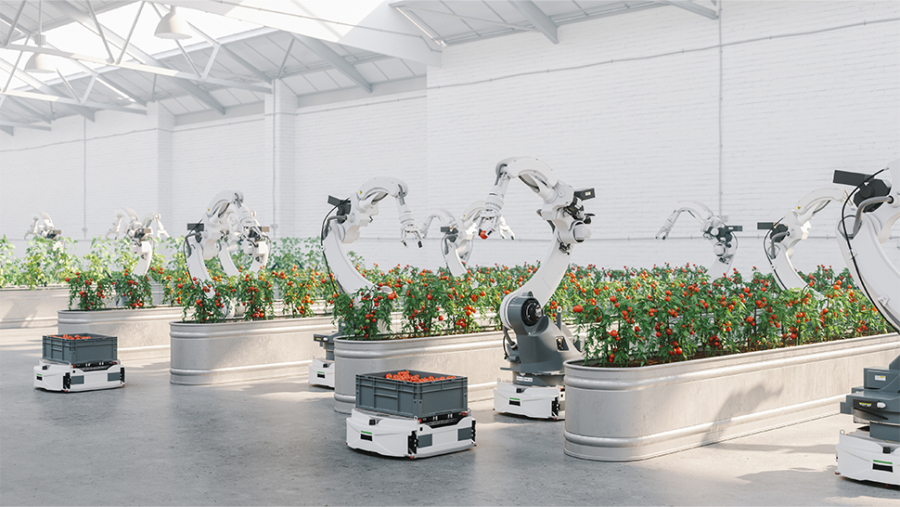

Agri-tech, as the name suggests, is technology that assists the agricultural sector. The purpose of this technology is to improve efficiency and increase productivity and profitability.
In 2021 the Government launched a new funding programme to support farmers, growers, foresters and other businesses develop agri-tech. This funding was awarded to projects that focus on productivity, enhancing environmental sustainability and helping the agricultural sector to reach net zero.
As Parliamentary Under-Secretary of State for Agri-Innovation and Climate Adaptation, Jo Churchill said:
“Innovation is vital to address the challenges facing the agricultural and horticultural sectors. New ideas, technologies and processes will play a key role in helping farmers, growers and businesses to become more productive.”
Agri-tech before investment
Prior to this funding becoming available, Brexit and the pandemic had affected agri-tech productivity and according to Defra, agriculture was three-times less efficient than in other sectors of the UK economy. Added to this is a reluctance to adopt new technology because of the cost of investment required to set this up and confusion over the options available. Another issue is the lack of online connectivity in many rural areas – although infrastructure is being improved this is still a problem. However, farmers are recognising the need for progressive farming, particularly with ongoing issues around recruiting seasonal workers and climate change.
Moving forward to the present day, there is a lot of positivity and excitement in the agri-tech sector, with start-ups and tech accelerator programmes identifying the problems farmers currently face and working out how to fix this. Examples include:
Breedr
Breedr was supported by a tech accelerator programme (Farm491) and raised £8million in investment to develop and launch its app. The purpose of the app is for animal management, such as recording data about each animal, weighing animals, monitoring growth and logging treatments. The business has become so successful they have now expanded to the USA.
Breedr identified that one of the challenges in selling its product was that farmers were concerned that they wouldn’t have the technical ability be able to use the technology. In order to combat this, Breedr offers an introductory session to demonstrate how to use the product, boost confidence and also provide a printed manual.
Muddy Machines
Muddy Machines was initially supported by Entrepreneurs First (and then Innovate UK, BritBots and Angel Investors) and has developed an asparagus harvesting robot that uses AI and sensor technologies to harvest the crop for up to 16 hours a day. The robot, aptly named Sprout, is supported by an app that allows farmers to monitor the harvest performance. The business is now looking for investors to enable them to launch the product.
Access to funding will lead to a brighter agri-tech future
The future of agri-tech therefore looks bright, albeit it is important that funding continues to be available to develop this, not just to get started with the development of products, but also as an ongoing resource to enable the product to be trialled and launched. This funding also needs to be signposted better, so how to access this is clearer.
It is also acknowledged that the agri-tech sector is struggling to attract developers, coders, marketeers and nutritionists etc. In order to improve this, various strategies are being deployed – the National Farmers Union has launched a roadshow where it visits schools and community groups to highlight all the different and diverse opportunities available in the agricultural sector, including agri-tech.
More information about the funding can be found here on the .gov website.










